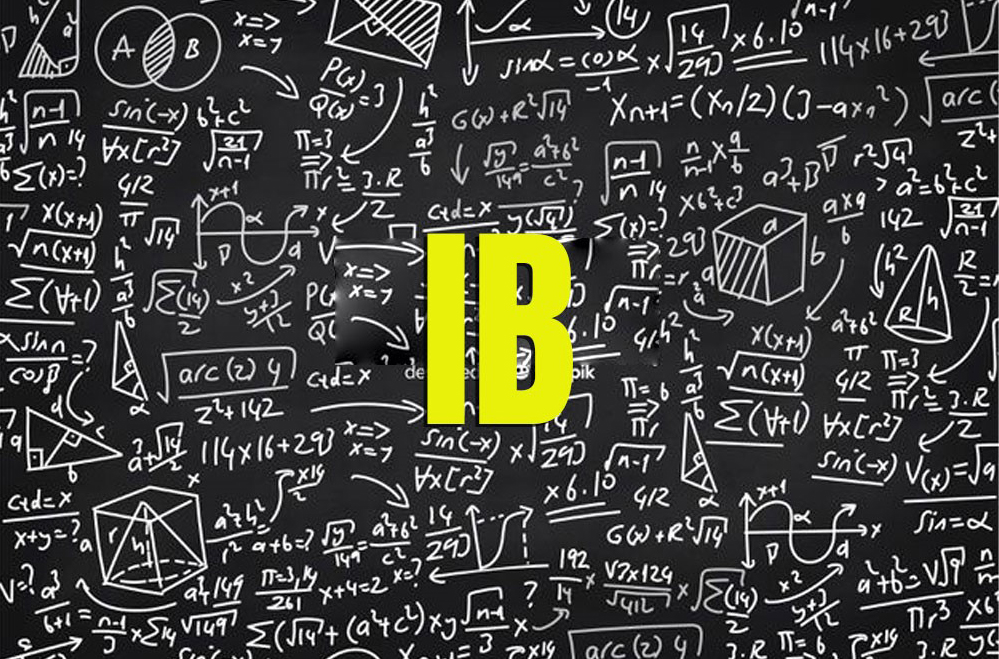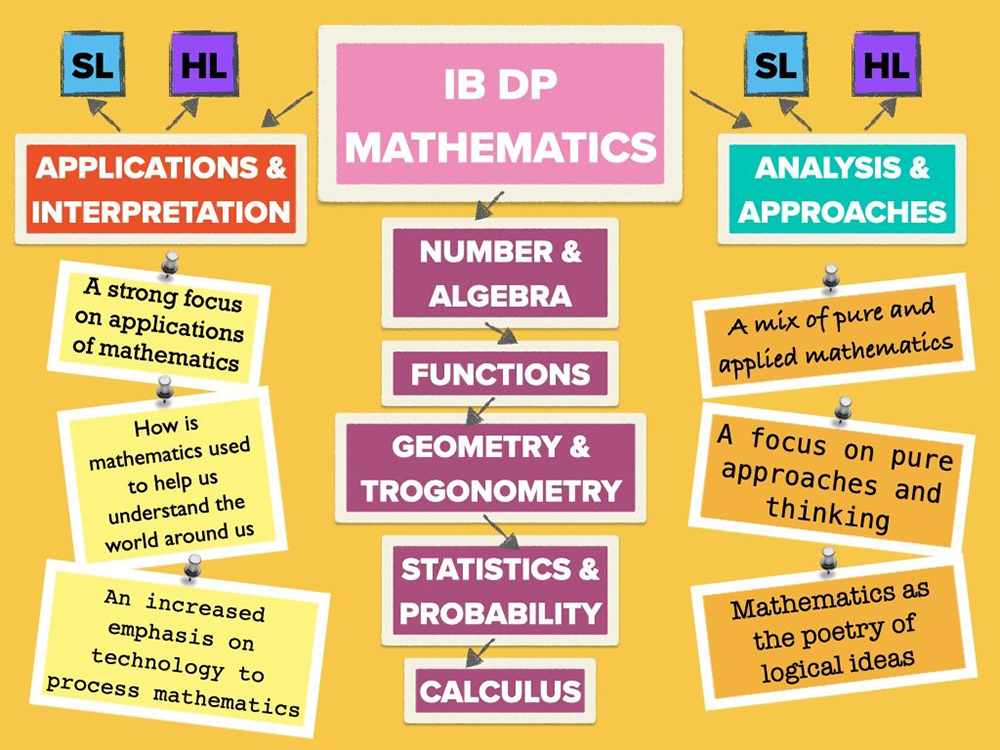UNVEILING THE PRACTICAL SIDE OF MATH IN THE IB DIPLOMA PROGRAMME

Math concepts can sometimes feel like a secret code, full of strange symbols and confusing rules. It is easy to assume that math is just about memorizing formulas and equations. But the IB Diploma Programme (IBDP) shows the other side to math – a practical side that can be used to solve real problems in the real world.
The IBDP offers two different math courses: Analysis and Approaches (AA) and Applications and Interpretations (AI). These names might sound complicated, but here's a breakdown:

This course is like a detective training program for the brain. It helps in becoming a critical thinker who can analyze problems and figure out solutions. Learning how to break down complex situations into smaller, easier-to-understand pieces is the prime focus.
This course focuses on taking math out of the textbook and putting it into action. Applying math skills in everyday situations, like figuring out the best travel route or understanding weather forecasts is taught.
Taking IBDP math gives valuable skills that can be beneficial throughout life.
IBDP math helps develop critical thinking and problem-solving skills. These are like superpowers that help tackle challenges in any field chosen, from science to business to even music!
Math is everywhere in the world, even in subjects that might seem different, like history or art. Learning math in IBDP helps to understand connections between different subjects and understand the world around in a whole new way.
Universities love students who have taken IBDP math. This program shows how a dedicated learner can think critically and solve problems effectively. It provides learners a head start in their academic journey.

The way IBDP teaches math is different from traditional math classes. Instead of just memorizing formulas, learners understand how to use math in real-world situations. Imagine using math to analyze the trajectory of a rocket launch or understand the sounds traveling underwater – pretty cool, right?
Here are some of the real-world math topics to explore in IBDP:
This might sound basic, but understanding numbers and how to manipulate them is essential for many real-world applications.
Functions are like recipes in math – they instruct on how one thing (an input) can be made into another (an output). Learners are taught to use functions to model real-world phenomena, like population growth or the spread of a disease.
Geometry is all about shapes and sizes, while trigonometry is about angles and relationships between sides of triangles. These skills are used in everything from architecture and construction to navigation and engineering.
Statistics is the science of collecting and analyzing data. Probability helps understand the likelihood of something happening. These skills are essential for making informed decisions in everyday life.
Calculus is a more advanced branch of math that deals with change and motion. It's used in many fields, including physics, engineering, and economics.
IBDP math cannot be mastered through sheer grades, it is also about developing essential skills necessary for life such as:
This helps learners think clearly and analyse information objectively. Learning how to identify patterns, draw logical conclusions, and avoid making mistakes based on emotions or biases are mastered.
The world is full of data, and IBDP math teaches learners to make sense of it. They learn how to analyze data, identify trends, and draw meaningful conclusions.
This means more than just knowing math formulas. It's about understanding how math is used in the world and being able to apply mathematical concepts to solve problems. These skills will help learners make better decisions in everyday life, from managing their finances to understanding scientific news reports. It also makes them more attractive as candidates for colleges and universities.
Studies show that universities prefer students who have taken IBDP math. Why? Because this programme shows that they can think critically and solve problems beyond the obvious. For example, imagine wanting to predict the outcome of a cricket match. Most people would rely on luck or guesswork. But with IBDP math, the outcome can be approximately leveraged based on weather conditions, past performances of the teams on the whole and individually, pitch conditions, probability of the toss, and the officiating umpire's decision-making trajectory.
In conclusion, the IB programme’s emphasis on real-world applications transforms mathematics from a theoretical exercise into a practical tool. From confusion to conclusions, mathematics bridges the gap between understanding and solving through models, analysing data, and interpreting results. Students learn a critical skill set that lets them not only solve problems but also understand the world better. This approach equips them for success in any field they choose, fostering a lifelong appreciation for the elegance and power of mathematics.
© Knowledgeum
